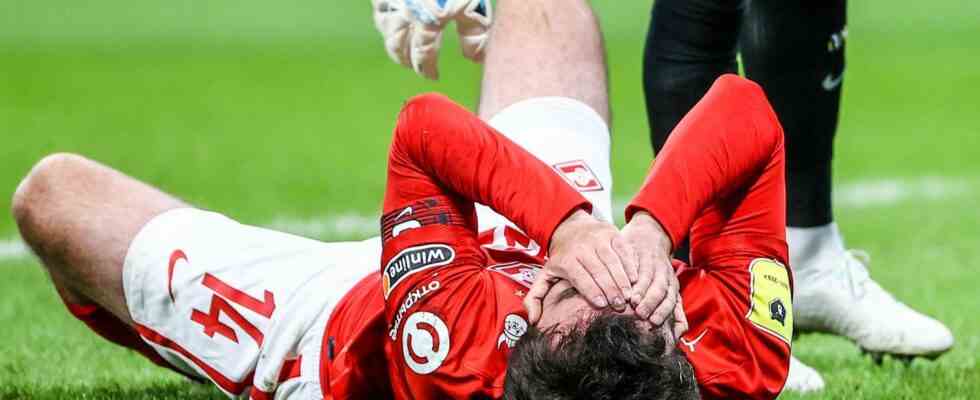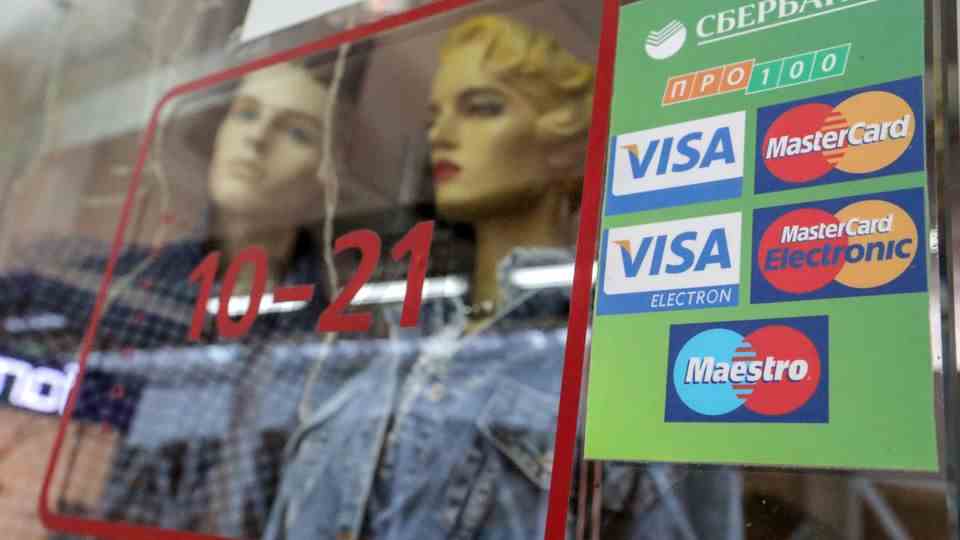Sanctions and Player Escape
Consequences of the Ukraine invasion: Russian football falls into insignificance
Symbol of Russian football: Georgi Dzhikiya, professional from Spartak Moscow, on the ground. The club, set to face RB Leipzig in the Europa League, has been banned from the competition.
© Mikhail Tereshchenko / Picture Alliance
The sanctions over the invasion of Ukraine are also hitting Russian football hard. Clubs and national teams have been excluded from the European Cup and World Cup. The league continues to struggle, although a number of players and coaches have fled.
It’s been three and a half years since Russia celebrated a huge celebration: the World Cup in their own country also promised a boost for Russian football. But now sport has become a victim of its own government. Russia’s invasion of Ukraine has far-reaching consequences: coaches are quitting their jobs in droves, half the teams are leaving the clubs, international bans are in place – Russian football is threatened with an unchecked fall into insignificance. Only the league is still holding the flag high. After a short discussion about a cancellation, the game continues.
“It was very hectic. First the coaches left, then the foreign players wanted to leave too. It felt like a sinking ship,” said Sweden international Viktor Claesson. With his wife, it took the 30-year-old a day and a half to reach his homeland from Krasnodar. The club near the Black Sea was hit hardest. The German coach Daniel Farke canceled his contract after a few weeks, nine players left as well.
Fifa suspends contracts of foreign professionals
It might just be the beginning. On Monday evening, the world governing body Fifa approved a special transfer window for foreign players in Russia and Ukraine. A vague concession, however, because the contracts between the professionals and their clubs will not be terminated, but only suspended until the end of June.
The association’s reaction to the Fifa intervention shows that a lot of realism has been lost in Russia. “Everyone involved with football is outraged by this. It’s purely political and has nothing to do with football,” said Mikhail Gerzhkovich, a member of the Executive Committee. In addition, the association is taking action before the International Sports Court Cas against the exclusion from the women’s European Championship in England and the men’s World Cup in Qatar.
Ex-Bundesliga professional Voronin: “Like in a horror film”
Andrei Voronin’s words make it clear that football and politics are inseparable. The former Bundesliga professional and Ukrainian international was Sandro Schwarz’s assistant coach at Dynamo Moscow and ended his contract. “When I see the photos from my homeland, it feels so unreal. It’s like something out of a horror movie. We’re living in 2022 and not during the Second World War,” said the former striker. In the English Premier League, the Ukrainian professionals Oleksander Zinchenko and Vitaly Mykolenko use the football stage to publicize the horror in their country and to call for peace.
The game has long since stopped at home. Nobody knows when and how things can go on there. Due to the reactions and sanctions, there is not only incomprehension in Russia, but also partial defiance. “The rats are leaving the sinking ship. We don’t need people like that here. The number of legionnaires in the league should be reduced anyway so that our boys no longer warm the bench,” said former national goalkeeper Anzor Kavasashvili. There have even been claims that Roman Abramovich should buy Spartak Moscow as soon as he sells Chelsea.
Players don’t want to be in a country that is attacking others
But there are also voices that seem more realistic. “Russian football goes back to the 1990s,” said player agent Vadim Shipnev. “We need quality legionnaires so that our players can learn from them and gain experience. Let’s hope that with all the negatives there are also positives.”
There won’t be any at first. More well-paid foreign professionals will leave the country as clubs may not be able to pay them anymore. The ruble has drastically lost value, banking is restricted and sponsors could also find themselves in trouble as a result of sanctions. In addition, players do not want to be in a country that is militarily attacking another.
Russia can cope with the loss of the World Cup
In terms of sport, a World Cup end for Russia is manageable. In the long run, the exclusion from the European Cup and the absence of strong foreign players will have the most serious consequences. Without these influences, Russian football will not be able to keep up with the rest of Europe in its development.


